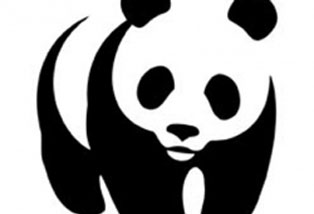Natalia Sarkisashvili, Kakheti Information Center
Caucasia Office of World Wide Fund for Nature (WWF) considers that permitting hunting in national parks and hunting on species included in the red list is categorically unacceptable.
The draft law initiated by the representatives of Parliamentary majority on Amendments to Certain Legislative Acts envisages adoption of new rules and procedures regarding the animal and plants on the edge of extinction. According to the draft law, in the national parks and reservations of Georgia, it is allowed to hunt on the species included in the red list of Georgia. Hunting on bear, deer, aurochs and other rare species can be subject to law.
“Such regulation does not correspond with the international practice and it contradicts the principles of International Union for Conservation of Nature regarding the categories of protected territories. Adoption of the above-mentioned provision will deprive the national parks of it legal meaning and will equalize it to other categories which are under lower legal protection (prohibited, protected territory and territory of multilateral use). In practice, all this will result in more damage than benefit: the reservations and national parks are the shelters for the representatives of our fauna, certain “reservoirs” where there are animals and birds; thus there is a resource created for arrangement of external hunting agriculture outside the protected territories. Besides, permitting hunting will endanger the positive tendencies of tourism development in Georgia. In general, permitting hunting in the national parks of Georgia and lessening regime of its protection negatively reflects on the international authority of Georgia,” – reads the special statement of WWF.
Besides, Caucasia Office of World Wide Fund for Nature notes that the draft law vaguely talks about the species of the red list. “We would like to note that lessening the significance of red list of Georgia negatively influences the state of natural eco-systems of our country. It is inadmissible to hunt on the species of the red list. Besides, the regulation of red list envisages its periodical update by collecting new data regarding the status of the species included in it: after the update, the status might be increased or decreased. Some species can be even taken out of the red list. However, all this must be preceded by a grounded scientific evaluation,” – the international governmental organization notes.
The draft law was criticized by Georgian environmental NGOs as well.
The association Green Alternative stated that legalizing hunting on the species of red list and in the national parks means selling the gold fund preserved in national museum for a dime just because the money paid by the museum visitors is less than the income gained through selling and the exhibitions are too expensive to maintain.
The statement of species conservation center Nakresi notes: “We think such change will singlehandedly result in negative outcome. Particularly significant is that certain species included in the red list are going to face the danger of full destruction; as a result of allowing hunting in national parks practically there will be no place left in Georgia where the wild species can multiply in natural environment, in other words there will be no natural reservoirs of these species (small scale state reservations will not fulfill this function). Thus, the fundamental essence of the protected territories will lose its meaning; some offered changes are oriented on the short-term financial effect and will not be able to promote the stable hunting tourism; the tourist potential of Georgia’s national parks will be endangered like the international image of eco-tourist direction of Georgia; implementing offered changes according to the draft law will mean throwing away multi-million investments invested in the sphere of nature protection. This will raise suspicions towards the support of significant donors like the EU and its member states, Global Environment Fund and etc…”




